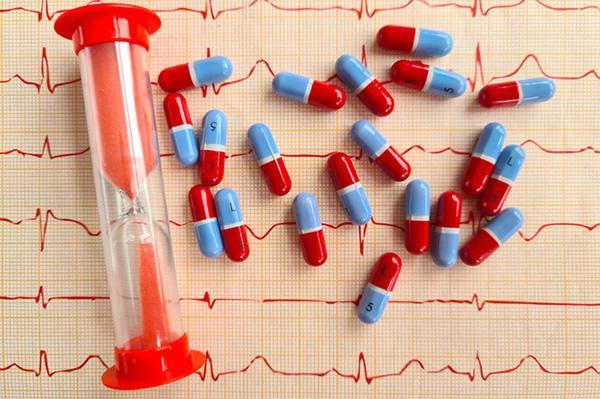
What are somatic workouts?

How to curb your stress eating

How to spot Parkinson’s disease symptoms

8 simple ways to reduce ultra-processed foods in your diet

Heart failure symptoms in women: How they’re different

GERD diet: Foods to avoid to reduce acid reflux

Strong is the new skinny

Everyday habits that sneakily weaken your bones

Don’t wait to get help for back pain

Correcting how you walk may ease osteoarthritis knee pain
Heart Health Archive
Articles
4 keys to a heart-healthy diet
The foundation of a heart-healthy diet should be minimally processed plant-based foods, which are good sources of fiber, protein, and phytonutrients. People should also limit saturated fat and make sure they consume omega-3 fatty acids.
Does everyone benefit from cutting saturated fat in their diet?
A review of 17 studies found that for people at high risk of heart disease, cutting down on saturated fats may have lowered their risk of major cardiac events over the next five years, but people at lower risk did not see similar benefits.
Aldosterone overload: An underappreciated contributor to high blood pressure
Elevated levels of aldosterone (a hormone that regulates water, sodium, and potassium in the body) is an underrecognized and undertreated contributor to high blood pressure.
Beyond statins: New ways to lower LDL cholesterol
Two medications now in development, enlicitide and obicetrapib, can lower harmful LDL cholesterol and may be promising options for people who cannot tolerate statins or who still have high LDL despite their current treatment.
Reversing prediabetes may slash heart disease risk by half
People with prediabetes who successfully lower their blood sugar back to normal levels may cut their future risk of death due to heart disease by half, according to a 2025 study.
Finding and fixing a stiff, narrowed aortic valve
A narrowed aortic valve (aortic stenosis) affects about one in 20 people over age 65. Medical therapies for treating this progressive disease are under investigation, and a recent study explored the potential benefits of proactive valve replacement.
What is a cardioversion procedure?
Electrical cardioversion is generally a safe, painless procedure used to convert a rapid or irregular heartbeat (such as atrial fibrillation) back to a normal rhythm. It’s done under sedation and takes only a few minutes.
Can you stop blood thinners after an ablation for atrial fibrillation?
After a successful catheter ablation to treat atrial fibrillation, some people may safely stop taking anti-clotting medications. But the decision to discontinue those drugs depends on a person’s underlying risk of stroke rather than the success of the procedure.

What are somatic workouts?

How to curb your stress eating

How to spot Parkinson’s disease symptoms

8 simple ways to reduce ultra-processed foods in your diet

Heart failure symptoms in women: How they’re different

GERD diet: Foods to avoid to reduce acid reflux

Strong is the new skinny

Everyday habits that sneakily weaken your bones

Don’t wait to get help for back pain

Correcting how you walk may ease osteoarthritis knee pain
Free Healthbeat Signup
Get the latest in health news delivered to your inbox!
Sign Up











